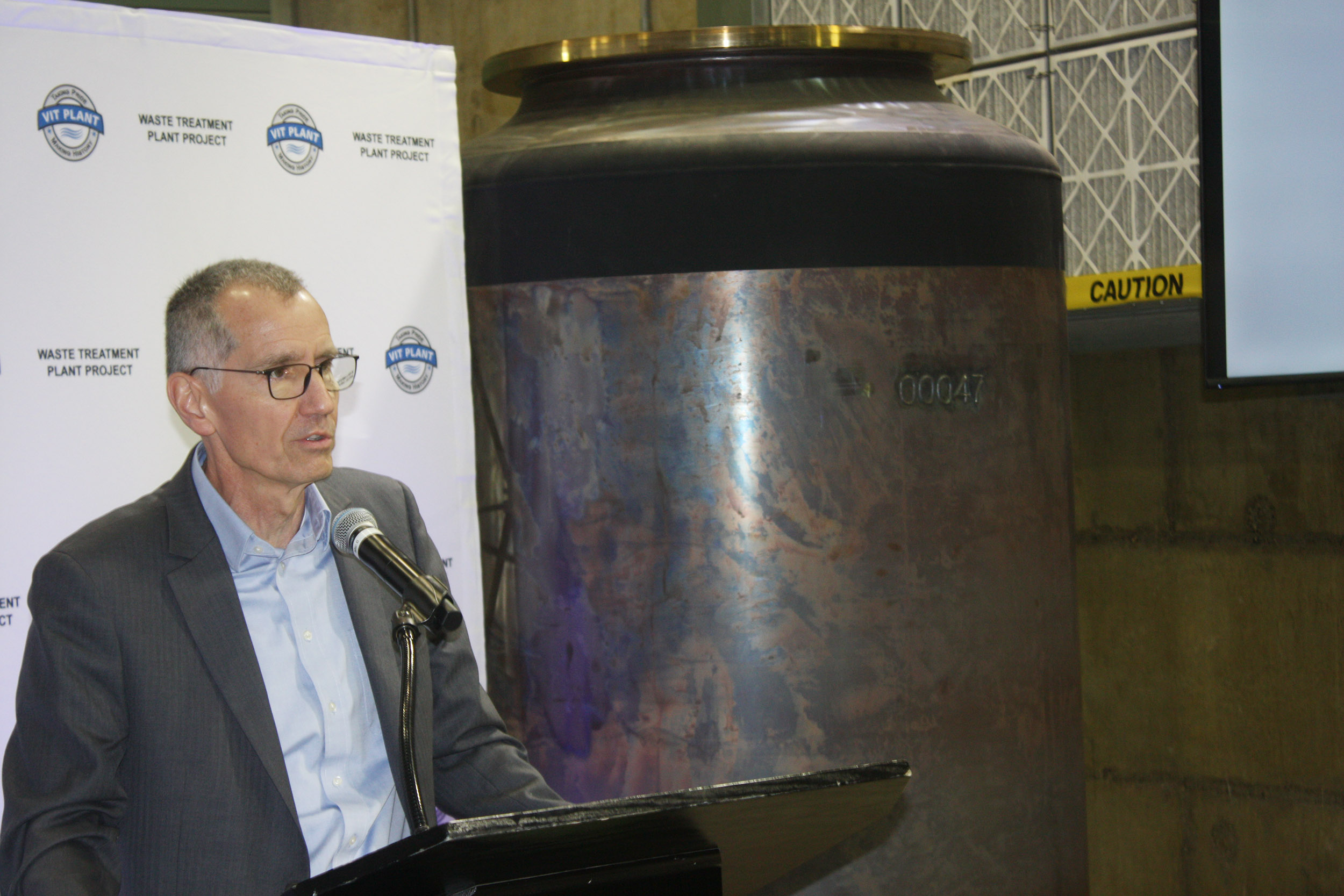
Washington raises $2B in first year of carbon pollution auctions

A Volvo XC40 electric vehicle featured at a December 2021 news conference in Olympia where Gov. Jay Inslee announced several climate-related proposals for the 2022 legislative session, including a plan to offer rebates on the purchase of new and used electric vehicles for qualified buyers. (AP Photo/Ted S. Warren)
Washington raised another $370.6 million in its final carbon auction of 2023, bringing the total to slightly more than $2 billion in the first year of the state cap-and-invest program, the Ecology Department announced Wednesday.
Carbon-emitting corporations bid every three months on state allowances for the pollution emitted by their facilities. The winning bidders all pay the same price on those allowances after the auction. The “settlement” prices in the first few Washington auctions were $48.50 for roughly one metric ton of carbon for the first quarter of 2023; $56.01 for the second quarter; $63.03 for the third; and $51.89 for the December auction.
Of the total $2 billion raised through the program, $1.82 billion goes toward environmental investments and another $376 million will go to gas and electric utilities to help ratepayers, especially low-income families.
The cap-and-invest system passed by the Legislature in 2021 is aimed at decreasing carbon emissions to a small fraction of their current levels by 2050.
In addition to clean energy investments, the program has made driving gas-powered vehicles more expensive. It has raised Washington’s price at the pump from 15 to 50 cents per gallon, depending on who is calculating. Republicans have been slamming Gov. Jay Inslee over those increases and a conservative group has been gathering signatures to send an initiative to the Legislature to get Washington out of carbon pricing.
Washington has traditionally had some of the nation’s highest gas prices due to various geographical and economic factors outside of the cap-and-invest program.
For the program’s first two years, the Legislature appropriated $2.1 billion in cap-and-invest revenue for numerous climate mitigation projects. On Monday, Inslee said the state expects to collect $941 million in additional cap-and-invest money in the first half of 2024, bringing the overall income to roughly $3 billion over the system’s first 18 months and adding that much to be spent on climate projects.
Inslee’s supplemental budget request includes:
- A one-time $200 credit to the utility bills of roughly 750,000 low- and moderate-income households in Washington.
- Speeding the transition from diesel school buses to electric school buses across the state.
- Installing electric heat pumps in low-income multiple-family homes, replacing gas furnaces.
- Providing matching funds for competitive federal grants to bring clean-energy jobs to Washington.
- Converting a large diesel ferry into a hybrid fuel/electric ferry. As Washington’s ferries are breaking down in increasing numbers, Inslee also said on Monday that future cap-and-invest income could speed up replacing the old ferries with new hybrid ones.
CORRECTION: Fixes the amount raised in the most recent action and how it was distributed.
Republican State Sen. Drew MacEwen has officially joined the race for the 6th Congressional District seat that will be vacated by outgoing U.S. Rep. Derek Kilmer.
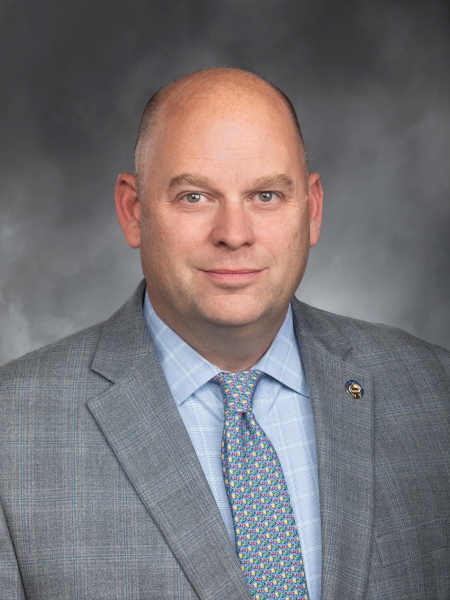
MacEwen, of Shelton, is the first Republican to register a campaign for this seat with the Federal Election Commission, which oversees federal campaign finance laws. Three Democrats – Commissioner of Public Lands Hilary Franz, State Sen. Emily Randall, D-Bremerton, and Jefferson County Commissioner Kate Dean – also have launched campaigns for the seat.
MacEwen, a U.S. Navy veteran, has been in the state Senate since January 2023 after he was elected to replace retiring State Sen. Tim Sheldon, D-Shelton. Before being elected to the state Senate, MacEwen represented the 35th District in the state House of Representatives between 2013 and 2022.
Washington’s 6th Congressional District covers the Olympic and Kitsap peninsulas and stretches into parts of Tacoma. The next elections for the U.S. House of Representatives will be in 2024, and the newly elected representative will start a two-year term in January 2025.
Sound Transit CEO Julie Timm to resign after just 16 months

A light-rail train heads out of Mt. Baker Station south toward Angle Lake, Feb. 11, 2022. (Genna Martin/Crosscut)
Sound Transit on Tuesday announced the resignation of CEO Julie Timm. Her final day at the regional transit agency will be Jan. 12, just 16 months after taking the position in September 2022.
The announcement comes on the heels of Timm’s performance review by the Sound Transit Board last week. The review is not yet public, but board members had recently expressed disappointment in the agency for not taking sufficient steps to avoid cost overruns and delays on its multibillion-dollar work to expand the Link light-rail system, according to reporting by Publicola.
In an email to the Sound Transit staff, which was shared with Crosscut, Timm wrote:
“For the past several months I have been struggling to balance the needs of long-distance care and support for my aging father with the intense requirements of leading Sound Transit as CEO. Over the past week in collaboration with board leadership, I came to the difficult, but I believe the correct, conclusion that my family needs more of my focus.”
In a press release, Sound Transit said Timm is moving back to the East Coast to spend time with family. The release continued, “Since joining Sound Transit in September 2022, Timm has overseen a renewed emphasis on the rider experience as Sound Transit approaches the opening of several new extensions, starting with East Link next spring.”
The Sound Transit Board expects to appoint an interim CEO in the coming weeks.
The agency is in the midst of its next phase of expansion, which will extend the existing line north to Lynnwood and south to Federal Way and build new light rail across Lake Washington from Seattle to Bellevue and Redmond.
Sound Transit is also in the planning stages of its third phase of expansion, which was approved by voters in 2016 as a $54 billion ballot measure. Once completed it will connect Tacoma to Seattle to Everett and build new lines in Seattle connecting West Seattle and Ballard to Downtown. The agency's most recent financial plan estimates it will spend $148 billion on operations and new construction between 2017 and 2046.
Update: This article was updated to clarify Sound Transit's estimated operations and construction costs.
The group Let’s Go Washington on Tuesday announced it is submitting signatures to put on the ballot a parents’-rights initiative that could be decided by voters next November.
Fueled by a big donor, Brian Heywood, the conservative group is aiming to qualify half a dozen proposed initiatives to the Legislature by an end-of-year deadline.
The proposed parents-rights’ initiative, Initiative 2081, would let parents and guardians of public-school children review curricula and student records, including disciplinary and health information, according to a summary of the proposal. Among other things, the measure would allow parents to opt their children out of sex education.
“A parent’s right to care for their child is foundational to strong communities and a functioning society,” Heywood said in a statement. “Parents are the primary stakeholder in raising children. No government employee can care about or love a child like their parent.”
The citizen sponsor of I-2081 is state Rep. Jim Walsh, R-Aberdeen, who is also chairman of the Washington State Republican Party. Let’s Go Washington gathered more than 420,000 signatures, nearly 100,000 more than needed to qualify, according to the group.
The proposal comes after loud opposition by conservatives to a comprehensive sexual education law passed a few years ago – and later approved by voters. A law passed earlier this year, Senate Bill 5599, has also rankled conservatives.
That new law expands an existing statute allowing organizations that provide services to unsheltered youth to hold off on notifying a guardian or parent if there are compelling reasons, such as neglect or abuse. SB 5599 added protected health care services as a reason to delay notification. Such services include reproductive health care and gender-affirming treatment. The bill quickly became a target in the national culture wars.
I-2081 is an initiative to the Legislature, and if it qualifies, lawmakers in the Democratic-controlled Legislature can either choose to pass it during the upcoming legislative session, which begins in January; take no action and let I-2081 go to the ballot; or pass an alternative proposal, which would send both I-2018 and the alternative to a vote of the people.
Last month, Let’s Go Washington submitted signatures for I-2117, an initiative to the Legislature that seeks to repeal Washington’s carbon cap-and-trade system.
Only 26% of WA children on Medicaid receive required lead testing
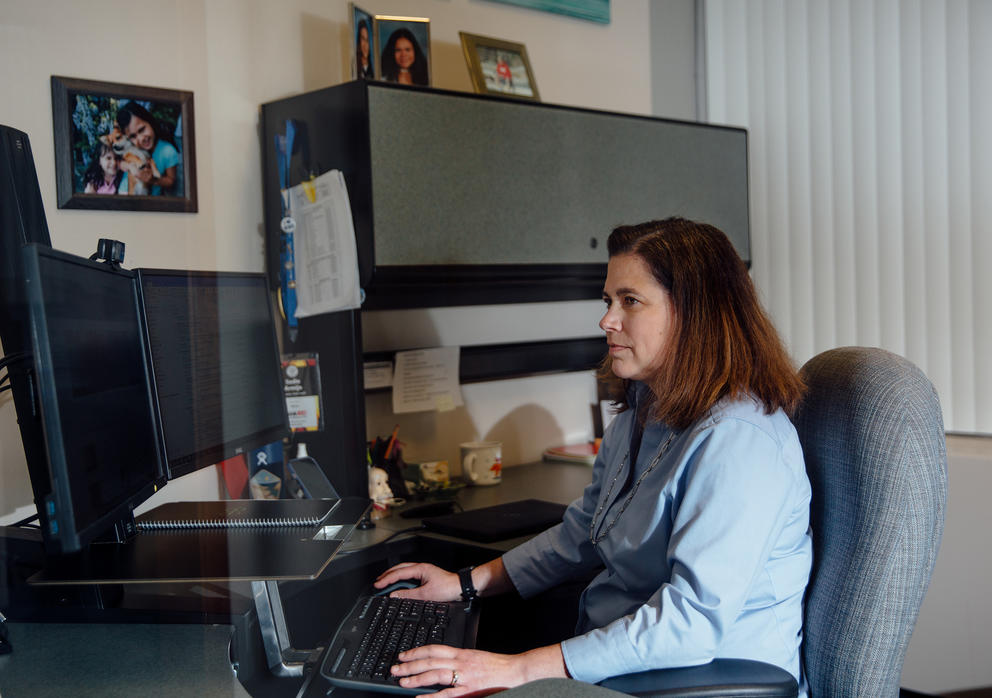
Sadie Armijo, director of State Audit and Special Investigations at the Washington State Auditor's office, in her Olympia office on March 2, 2022. (Lindsey Wasson for Crosscut)
A new state auditor’s report says only 26% of Washington children enrolled in Medicaid are being tested for lead exposure, even though the federal government requires them all to be tested twice between their first and sixth birthdays.
“Although Washington has multiple factors that can increase a child’s risk of lead exposure, most children with the highest risk have never been tested,” said the performance audit report issued Tuesday.
Children in areas with more risk for lead exposure were tested at higher rates; however, some counties with elevated risk tested the fewest children, according to the report. The auditor also notes that the state does not have an adequate process to make sure children are getting the required testing.
As the report notes, Washington children may not be as much at risk as children from more industrial states, but no level of lead exposure is healthy for kids. The auditor’s office did make some positive findings, including connecting better community outreach with higher testing levels.
Report recommendations to the Washington Department of Health and the Health Care Authority include:
– Make sure health insurance companies involved in Medicaid have a clear understanding of testing requirements.
– Increase awareness of lead exposure testing among health care providers.
– Implement a state monitoring process for lead testing.
– Assess lead exposure risk at the community level, at least annually.
The Health Care Authority responded to the report saying it is working on improving education, outreach and test monitoring structure. They also promised to look into mandatory tracking.
“Please thank your team for their work on this audit. We will use the information and recommendations as an opportunity to improve. Many improvements are well underway,” concluded the DOH and HCA response, which was also signed by David Schumacher, director of the Office of Financial Management.
Central WA counties settle lawsuit over Latino voter signatures
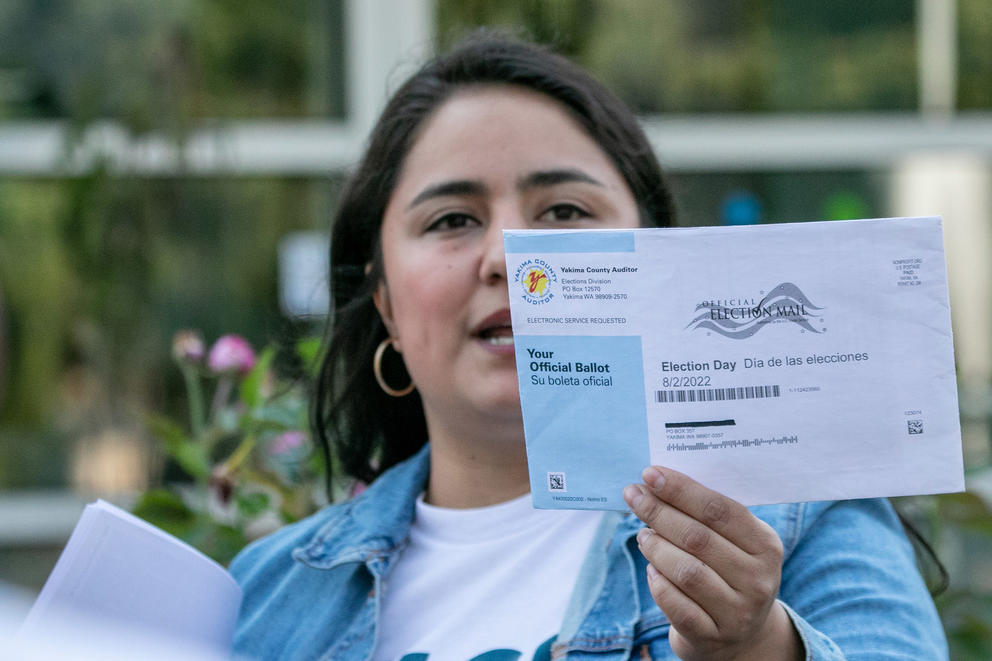
Dulce Gutierrez, Democratic candidate for Yakima County Commissioner, District 2, provides instructions to campaign supporters at the Yakima Valley Museum about how to explain to registered voters how to properly submit their ballot before setting off to visit those voters on Sat., Oct. 15, 2022. (TJ Mullinax/Crosscut)
Yakima, Benton and Chelan counties have settled a 2021 lawsuit filed by Latino voters and advocacy groups over the county’s voter signature verification process.
The voters and the League of United Latin American Citizens and Latino Community Fund of Washington sued elected officials in the three counties in May 2021, alleging the three counties’ signature verification process violated the federal Voting Rights Act. According to the complaint, Latino voters in the three counties were several times more likely to get their ballot rejected due to a mismatched signature.
Benton and Chelan counties reached a settlement with plaintiffs in October. Yakima County was the sole defendant in the suit long enough for a trial date to be set before ultimately reaching a settlement as well last week.
Under the settlement, the three counties will conduct mandatory signature verification training for county auditor election staff. County election staff must also complete cultural competency training every two years. Finally, ballot materials will now include language on a ballot’s security sleeve that outlines signature verification requirements, cure processes and other terms.
The settlement with Yakima County notes that the county already meets some of the settlement terms, including providing significant verification and cure-process language and Spanish-language voter registration information.
Counties admit no wrongdoing in their settlements. In a statement to the Yakima Herald-Republic, Yakima County Auditor Charles Ross said he felt his elections office followed state law, that the complaints were “meritless” and that the county settled this suit from a “business perspective.”
Washington Healthplanfinder, the state’s health insurance exchange, will offer a few days of extended phone hours through Jan. 15, including some weekends, as deadlines approach to get health coverage through open enrollment for 2024.
People who sign up by Dec. 15 will get coverage starting on Jan. 1. Those who sign up by Jan. 15 will get coverage starting on Feb. 1. About 232,000 people were enrolled for 2023 health insurance through the program.
The health insurance exchange’s website is https://www.wahealthplanfinder.org/ and the customer support center is available at 1-855-923-4633.
According to the state, about 75% of people who are getting coverage through Washington Healthplanfinder could lower their monthly premiums by comparing plans, including checking their eligibility for assistance through the state subsidy program, Cascade Care Savings.
Regular business hours for the customer support center is 7:30 a.m. to 7 p.m., Monday through Friday. Extended call center hours are:
- Dec. 15, 7:30 a.m. to midnight
- Dec. 16 (Saturday), 10 a.m. to 2:30 p.m.
- Jan. 14 (Sunday), 10 a.m. to 2:30 p.m.
- Jan. 15, 7:30 a.m. to midnight
The call center will be closed on Dec. 25 (Christmas Day), and Jan. 1 (New Year’s Day).
People can also get assistance signing up through the exchange at no additional cost through independent brokers and health insurance navigators.
Earlier this year Washington became one of the few states to make coverage available to all of its residents, regardless of citizenship or immigration status. While federal subsidies are not available to undocumented adults, those who qualify by income could be eligible for Cascade Care’s state subsidies.
Washington’s Department of Labor & Industries handed a Yakima orchard $290,000 in fines after two workers died in tractor rollovers this summer, the safety agency announced today.
The agency issued Borton & Sons five willful serious citations for the two deaths, citing them for failing to ensure a rollover protection system was being used and that workers wore seatbelts. Willful violations are given when L&I believes employers knew or should have known the safety standards, but failed to make sure they were being followed.
Farmworker Gilberto Padilla died on May 7 as he was driving a tractor between orchards, according to the inspection summary. The vehicle rolled after he drove over front counterweights that had fallen off. About a month later, on June 8, Oscar Rodriguez-Olivera died in a tractor rollover after he made a sharp turn traveling down a hill, according to L&I.
In both deaths, the protection system to prevent workers from being crushed in a rollover was not in use, according to L&I. Nor were the workers wearing seatbelts. L&I officials stated they had directed Borton & Sons to ensure the proper use of rollover protections and seatbelts after the first death. The agency also cited the company for allegedly altering the scene of the second fatality before an L&I inspection began.
“Using a rollover protection bar and seat belt is such a simple way to save workers’ lives. These incidents should not happen,” Craig Blackwood, assistant director for L&I’s safety and health division, said in the press release. “Orchard owners have the responsibility to make sure workers use safety systems. If Borton & Sons had been vigilant, these workers might be alive today.”
Borton & Sons has a history of safety citations and penalties violations, according to data collected by the Occupational Safety and Health Administration. The fruit grower is contesting the 2023 fines.
L&I issued more than $14.7 million in fines last year to companies for violating health and safety laws. A recent Crosscut investigation found the agency later reduces many initial penalties, and sometimes struggles to head off repeat safety violations even after a worker has died.
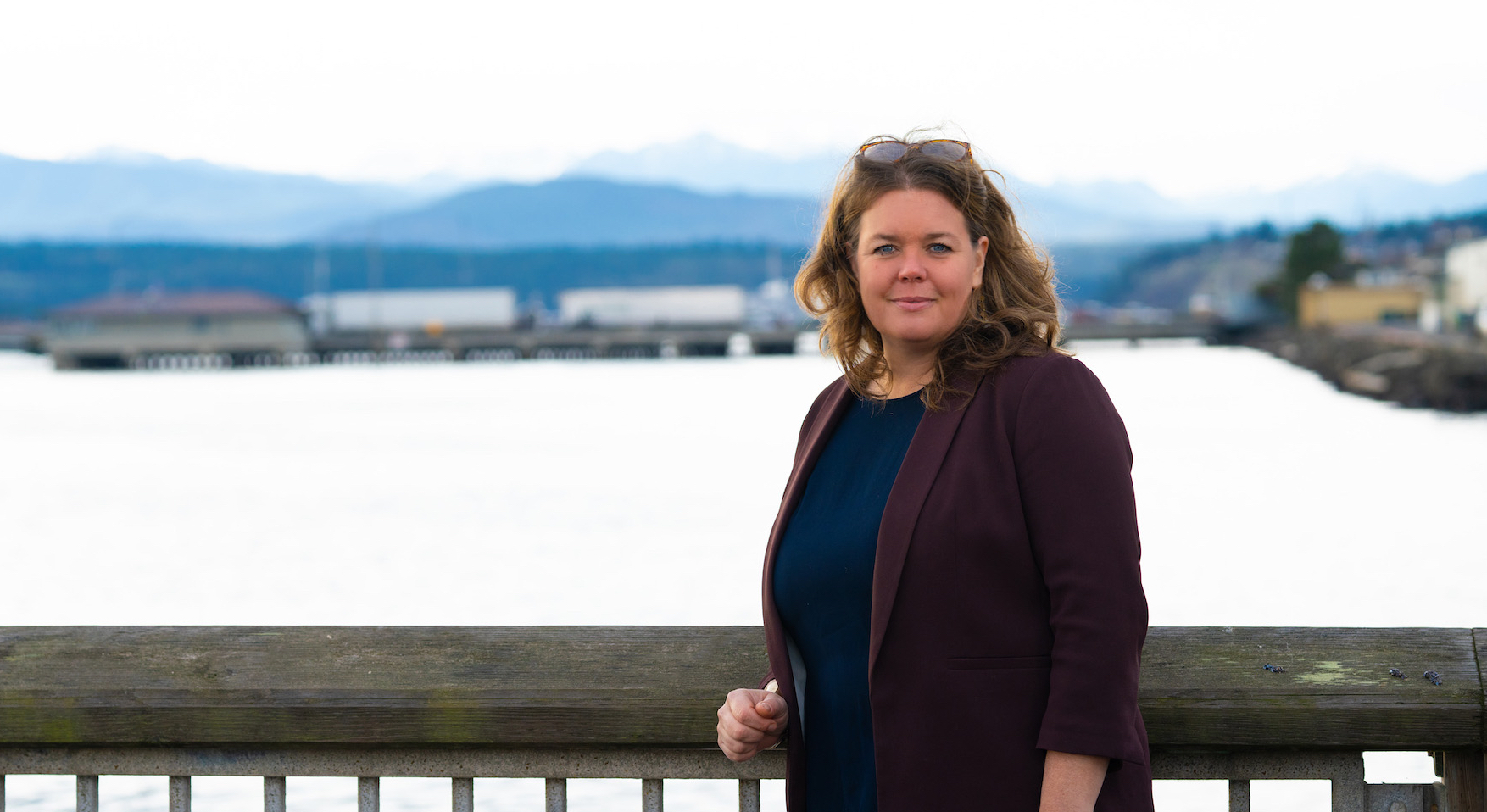
A third Democrat has announced a bid for the seat of outgoing U.S. Rep. Derek Kilmer, who is not seeking reelection after more than a decade in Congress.
Jefferson County Commissioner Kate Dean announced her bid Tuesday. Dean has been on the Jefferson County Board of Commissioners since 2017 and also serves on the Washington State Board of Health and the Puget Sound Partnership Leadership Council. Dean joins Commissioner of Public Lands Hilary Franz and State Sen. Emily Randall, D-Bremerton, as confirming their candidacies in the race for Washington’s 6th Congressional District.
Kilmer’s decision to not run for reelection prompted Franz, state Commissioner of Public Lands since 2017, to drop her 2024 bid for governor to run to replace Kilmer in Congress. Randall, the State Senate Deputy Majority Leader, announced she also would run for the seat about two weeks after Kilmer’s announcement.
Republican State Sen. Drew MacEwen, R-Union, also announced last month that he was exploring a run for Kilmer’s seat.
Washington’s 6th Congressional District covers the Olympic and Kitsap peninsulas and stretches into parts of Tacoma. Kilmer, a Democrat, was first elected to represent the district in 2012. The next elections for the U.S. House of Representatives will be in 2024, and the newly elected representative will start a two-year term in January 2025.
At long last, Hanford poised to clean up nuclear waste with glass
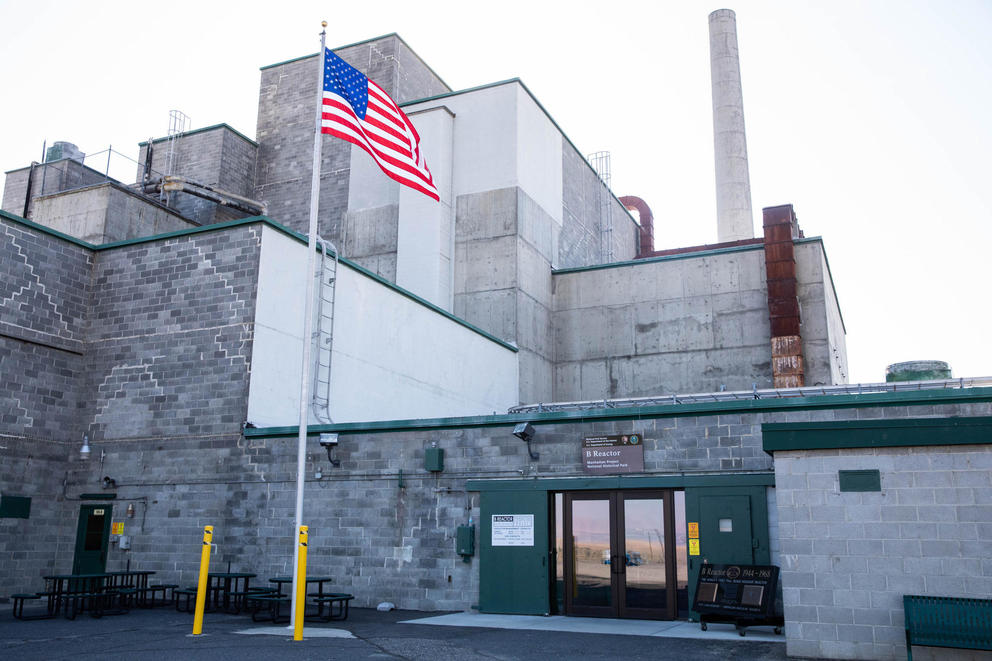
The B Reactor at the Hanford site on Oct. 12, 2022. (Amanda Snyder/Crosscut)
The Hanford nuclear reservation is on track to start encasing huge volumes of its worst radioactive wastes in glass within 18 months, marking progress on a cleanup project that is 16 years behind its original schedule.
Hanford, a decommissioned production site of nuclear bomb materials, filled its first canister with melted non-radioactive glass last week, a process called “vitrification,” the site’s leaders announced Monday.
“It was not obvious to everyone except this [vitrification plant] team that we’d be here today,” said the federal Department of Energy’s Hanford Manager Brian Vance at a Monday ceremony at the site’s low-activity-waste vitrification plant.
Hanford is expected to begin melting radioactive wastes together with glass flakes between April and June 2025 at a rate of 21 metric tons a day, Vance said. Hanford’s first melter poured its first glass in late October while the first 7.5-foot-tall, 4-foot-in-diameter stainless-steel canister was filled last week. It held slightly less than 1,800 gallons of cooled, greenish glass weighing 6.8 metric tons.
Hanford, which ended production in 1987, has 56 million gallons of radioactive waste in 177 leak-prone underground tanks. The tanks hold more than 100 types of deadly chemicals and highly radioactive wastes left over from its manufacturing of plutonium for atomic bombs during World War II and the Cold War. These tanks are arguably the most radiologically and chemically contaminated site in the Western Hemisphere.
Hanford plans to start testing its second low-activity-waste melter in a few weeks. The two melters are expected to have lifespans of about five years.
Next year, DOE and contractor Bechtel National plan to test the melters while running them 24/7. The tests will include simulated wastes. The Washington Department of Ecology, one of the site’s regulators, is especially interested in tests of the gases emitted into the atmosphere from the melting process, said Suzanne Dahl, tank waste treatment section manager for the ecology department.
“We will continue tirelessly to complete the entire mission,” said Bechtel’s senior vice president and glassification project director Brian Hartman. (“Glassification” is another term for converting something into glass.)
“This milestone demonstrates the progress we can make when the federal government meets its legal and moral obligations,” said Sen. Maria Cantwell, D-Wash., in a recorded video presentation to the small crowd Monday.
The glassification project has faced multiple delays and setbacks since it was announced more than two decades ago. Over the past 25 years, the DOE and its contractors have continuously underestimated the project’s complexity, playing fast and loose with short-term goals at the expense of long-term ramifications.
The project’s early history includes the DOE getting rid of two site managers who warned that the glassification plant would be more complicated and more expensive than anticipated. In 2010, another subcontractor manager was exiled due to his warnings that major technical problems threatened potential leaks and explosions, which threatened Bechtel getting a bonus from the feds. In 2015, Bechtel said the project would be delayed because of the problems that it hushed up in 2010.
Originally, the legal deadline to start glassification was 14 years ago, in 2009, and to finish glassifying in 2019. The project’s budget has grown from $4 billion to $17 billion, and could expand to more than $30 billion. Right now, Hanford’s legal target is removing all the waste from the single-shell tanks, planning to close those tanks by 2043 and the double-shell tanks by 2052.
The DOE has moved those targets back to 2069, a date not reflected in its current cleanup agreements with the state of Washington, according to a 2021 report by the Government Accountability Office. Those deadlines are expected to be pushed further back in a tentative agreement that will be publicly unveiled after the DOE and the Washington Department of Ecology finish reviewing changes in the draft.
The single low-activity-waste plant will handle only 40% to 50% of the low-activity wastes, which make up the bulk of the materials in the tanks. The rest of the low-activity wastes will have to be handled by a second plant, or by a different disposal method.
A high-level waste melting plant is on the drawing board, along with a pretreatment plant for that material. Currently, the DOE’s deadline to have its high-level waste melters online is 2033. However, that is expected to change when the tentative agreement is finalized.
